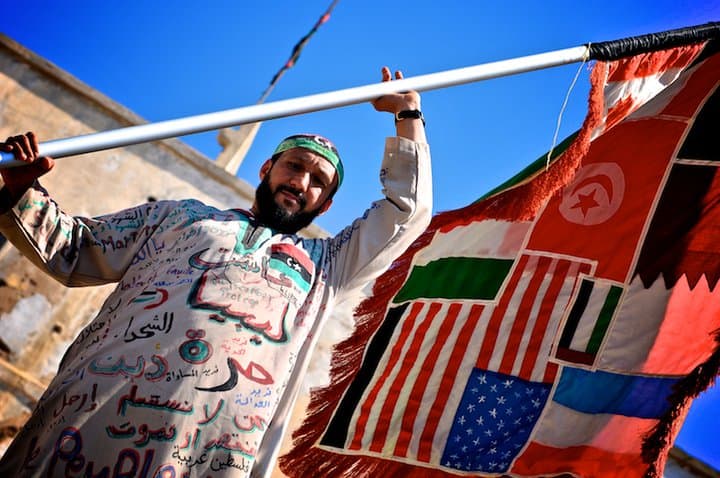The best event of the past year—really a series of events—was the surprising, startling, unpredicted surge of demonstrations against tyranny in some of the world’s most authoritarian, repressive, politically undeveloped countries: Tunisia, Yemen, Egypt, Syria, Bahrain, Libya. The men and women participating in these movements are very brave, often risking everything, including injury and death. But demonstrations in the Arab world are not exactly new. It is the activists’ demands—for freedom and democracy, rather than for nationalist aims or religious supremacy or the “death” of other countries—that is so astounding, so unexpected, so hopeful, so moving.
Of course, like all revolutions, these will play out for a long time—and it remains to be seen how freedom and democracy are in fact defined. The victory so far (in some of these countries) of Islamists—and of their fiercest, most reactionary brethren, the Salafists—is extremely worrisome, and should not be evaded. (The fact that these parties have won democratic elections does not mean that they themselves have democratic aims.) Whether democratic institutions—and, most important, the social relations of free citizens—can be created is very much an open question. But a question it is, and we should remember that history is long (even if the CNN news cycle is short).
The worst event of 2011 is the report, published in the American Journal of Public Health, that almost two million women in the Democratic Republic of Congo have been raped; the victims range from elderly grandmothers to extremely young girls. Please, please, let us stop talking about diamonds and coltan, as if the fight to control natural resources, and the riches associated with them, somehow “explains” these grotesque assaults—which are often accompanied by vaginal mutilation, and whose victims often contract AIDS. Nor does talk of colonialism, or neo-colonialism, help. You can imagine what Congolese women would say to that.
As I write this, I am looking at a photograph taken this year by New Zealand photographer Robin Hammond; it is simultaneously compelling and repulsive, and I gasped when I saw it. It shows a Congolese woman named Basemae who, the caption tells us, was raped—and, then, had her eyes carved out by her attacker. The only term for this is sexual terrorism. What is to be done?

